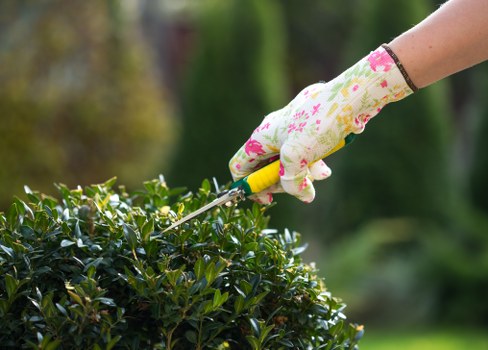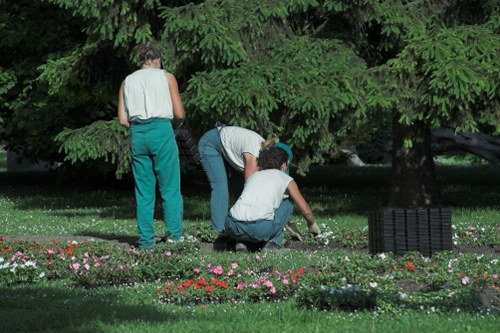Hedge Trimming Edmonton

Introduction to Hedge Trimming in Edmonton
Maintaining the beauty and health of your garden starts with proper hedge trimming. In Edmonton, where the climate can be quite harsh, regular hedge maintenance is essential. Whether you have a small backyard or a large estate, professional hedge trimming ensures your greenery remains vibrant and well-shaped.
Hedges not only enhance the aesthetic appeal of your property but also provide privacy and act as windbreaks. Understanding the best practices for hedge trimming in Edmonton can help you achieve a lush and orderly landscape all year round.
In this article, we will explore the importance of hedge trimming, the best techniques to use, the tools required, and how to choose the right hedge trimming service in Edmonton.

The Importance of Regular Hedge Trimming
Regular hedge trimming offers numerous benefits for your plants and overall garden health. It improves air circulation, reducing the risk of diseases and pests. Trimming also encourages new growth, ensuring your hedges remain dense and full.
Additionally, well-maintained hedges can significantly boost your property's curb appeal. Whether you're looking to increase the value of your home or simply enjoy a beautiful garden, consistent hedge maintenance is key.
In Edmonton's varying climate, hedges can become stressed from extreme temperatures and heavy snowfall. Proper trimming helps mitigate these stresses by maintaining the structural integrity of the plants.

Best Practices for Hedge Trimming in Edmonton
Timing Your Trims
Understanding the best time to trim your hedges is crucial. In Edmonton, the ideal times are:
- Early Spring: Before new growth begins.
- Late Summer: After the growing season has peaked.
- Avoid trimming during extreme cold or heat.
Trimming Techniques
Using the right techniques ensures that your hedges grow uniformly and healthily. Here are some tips:
- Start with the Basics: Remove any dead or diseased branches first.
- Shape Consistently: Maintain the same shape on all sides for symmetry.
- Don't Overtrim: Avoid cutting too much at once to prevent stressing the plants.
Maintaining Balance
Ensure that you maintain a balance in your trimming efforts. Over time, uneven trimming can lead to an unshapely appearance and affect the health of your hedges.

Essential Tools for Hedge Trimming
Having the right tools makes hedge trimming efficient and effective. Essential tools include:
- Hedge Trimmers: Electric or gas-powered for larger hedges.
- Pruning Shears: For precise cuts on smaller branches.
- Loppers: For thicker branches that shears can't handle.
- Protective Gear: Gloves, safety glasses, and sturdy footwear.
Investing in quality tools can save time and ensure your hedges are trimmed to perfection. Regular maintenance of these tools is also important to keep them in good working condition.
Additionally, using the right tools helps prevent damage to your hedges, promoting healthier growth and extending the life of your plants.

Seasonal Considerations for Hedge Trimming
Different seasons require different approaches to hedge trimming. In Edmonton:
Spring
Trim before new growth starts to shape the hedges and remove any winter damage.
Summer
Light trimming can encourage bushier growth, but avoid heavy cuts during heatwaves.
Autumn
Final trims to prepare for winter, removing any excess growth that could be damaged by snow and ice.
Winter
Avoid trimming unless necessary, as cold weather can stress the plants.
Choosing a Professional Hedge Trimming Service in Edmonton
Selecting the right service ensures your hedges are maintained properly. Here are some factors to consider:
- Experience: Look for companies with a proven track record in hedge maintenance.
- Reputation: Read reviews and ask for references.
- Services Offered: Ensure they provide comprehensive trimming services.
- Pricing: Compare quotes to find a service that fits your budget.
- Insurance: Verify that the company is insured to protect your property.
Local Expertise
Choosing a local Edmonton service means they understand the specific challenges of the area's climate and can tailor their techniques accordingly.
Local professionals can also respond quickly to seasonal changes, ensuring your hedges receive timely maintenance.
Nearby Areas for Hedge Trimming Services
Edmonton boasts several surrounding areas where professional hedge trimming services are available. These include:
- St. Albert: Just northwest of Edmonton, known for its beautiful residential gardens.
- Sherwood Park: An area with a mix of suburban and commercial properties requiring regular maintenance.
- Leduc: South of Edmonton, offering services tailored to both urban and rural landscapes.
- Spruce Grove: Northwest, with a focus on eco-friendly pruning practices.
- Stony Plain: West, where traditional trimming methods are favored.
- Fort Saskatchewan: Northeast, combining modern techniques with local plant knowledge.
- Beaumont: South, known for its expansive green spaces and private estates.
- Chestermere: East, where hedge trimming services cater to lakeside properties.
- Calgary: Although a bit further, it offers competitive services due to high demand.
- Wetaskiwin: Southwest, providing personalized trimming solutions.
- `Bang`: Inner suburb with a mix of old and new plant varieties.
- Grande Prairie: Northwest, dealing with unique climate challenges.
- Red Deer: Central Alberta, offering comprehensive garden maintenance services.
- Canmore: Near the Rockies, integrating hedge trimming with scenic landscape designs.
Frequently Asked Questions
1. How often should I trim my hedges in Edmonton?
Generally, hedges should be trimmed 2-3 times a year: early spring, late summer, and autumn. However, the frequency may vary based on the hedge type and growth rate.
2. What are the best hedge plants for Edmonton's climate?
Some suitable hedge plants include Boxwood, Privet, Arborvitae, and Holly. These plants are resilient and adapt well to Edmonton's weather conditions.
3. Can I trim my hedges myself, or should I hire a professional?
While small hedges can be trimmed by homeowners, larger or more complex hedges benefit from professional services. Professionals ensure precise cuts and maintain plant health.
4. What are the signs that my hedges need trimming?
Signs include uneven growth, overgrowth beyond desired shape, drooping branches, or visible signs of disease or damage.
5. How does hedge trimming affect the health of my plants?
Proper trimming promotes healthy growth, improves air circulation, reduces disease risk, and maintains the structural integrity of the hedges.